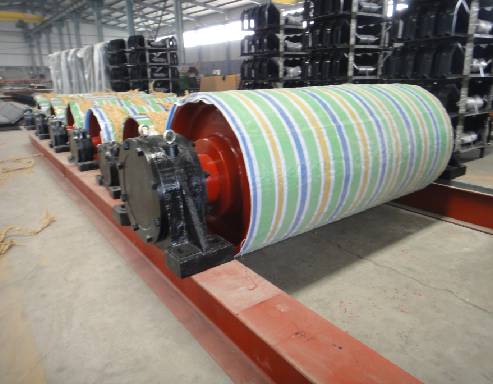 Afrikaans
Afrikaans  Albanian
Albanian  Amharic
Amharic  Arabic
Arabic  Armenian
Armenian  Azerbaijani
Azerbaijani  Basque
Basque  Belarusian
Belarusian  Bengali
Bengali  Bosnian
Bosnian  Bulgarian
Bulgarian  Catalan
Catalan  Cebuano
Cebuano  Corsican
Corsican  Croatian
Croatian  Czech
Czech  Danish
Danish  Dutch
Dutch  English
English  Esperanto
Esperanto  Estonian
Estonian  Finnish
Finnish  French
French  Frisian
Frisian  Galician
Galician  Georgian
Georgian  German
German  Greek
Greek  Gujarati
Gujarati  Haitian Creole
Haitian Creole  hausa
hausa  hawaiian
hawaiian  Hebrew
Hebrew  Hindi
Hindi  Miao
Miao  Hungarian
Hungarian  Icelandic
Icelandic  igbo
igbo  Indonesian
Indonesian  irish
irish  Italian
Italian  Japanese
Japanese  Javanese
Javanese  Kannada
Kannada  kazakh
kazakh  Khmer
Khmer  Rwandese
Rwandese  Korean
Korean  Kurdish
Kurdish  Kyrgyz
Kyrgyz  Lao
Lao  Latin
Latin  Latvian
Latvian  Lithuanian
Lithuanian  Luxembourgish
Luxembourgish  Macedonian
Macedonian  Malgashi
Malgashi  Malay
Malay  Malayalam
Malayalam  Maltese
Maltese  Maori
Maori  Marathi
Marathi  Mongolian
Mongolian  Myanmar
Myanmar  Nepali
Nepali  Norwegian
Norwegian  Norwegian
Norwegian  Occitan
Occitan  Pashto
Pashto  Persian
Persian  Polish
Polish  Portuguese
Portuguese  Punjabi
Punjabi  Romanian
Romanian  Russian
Russian  Samoan
Samoan  Scottish Gaelic
Scottish Gaelic  Serbian
Serbian  Sesotho
Sesotho  Shona
Shona  Sindhi
Sindhi  Sinhala
Sinhala  Slovak
Slovak  Slovenian
Slovenian  Somali
Somali  Spanish
Spanish  Sundanese
Sundanese  Swahili
Swahili  Swedish
Swedish  Tagalog
Tagalog  Tajik
Tajik  Tamil
Tamil  Tatar
Tatar  Telugu
Telugu  Thai
Thai  Turkish
Turkish  Turkmen
Turkmen  Ukrainian
Ukrainian  Urdu
Urdu  Uighur
Uighur  Uzbek
Uzbek  Vietnamese
Vietnamese  Welsh
Welsh  Bantu
Bantu  Yiddish
Yiddish  Yoruba
Yoruba  Zulu
Zulu Exploring the Benefits of PU Roller Technology for Enhanced Performance
Understanding the PU Roller A Versatile Tool in Modern Applications
Polyurethane (PU) rollers have gained significant attention in various industries due to their durability, versatility, and performance. Unlike traditional rubber rollers, PU rollers are engineered to provide enhanced resistance to wear, tear, and chemical exposure, making them suitable for a broad range of applications.
Understanding the PU Roller A Versatile Tool in Modern Applications
Furthermore, PU rollers excel in providing superior grip and traction. The unique properties of polyurethane allow these rollers to maintain their performance in diverse conditions, whether in humid environments, high temperatures, or in the presence of various chemicals. This adaptability is crucial in industries such as food processing and pharmaceuticals, where hygiene and contamination control are paramount. The non-porous surface of PU rollers inhibits bacterial growth and ensures compliance with stringent safety standards.
pu roller

Another significant advantage of PU rollers is their customization potential. Manufacturers can vary the hardness, size, and surface texture of the rollers to meet specific operational requirements. For instance, softer rollers are often used in applications requiring gentler handling of sensitive materials, while harder rollers are employed in high-speed machinery where durability is key. This ability to tailor rollers to precise specifications makes PU rollers a popular choice among manufacturers looking to optimize their production processes.
The longevity of PU rollers also contributes to their cost-effectiveness. While the initial investment may be higher than that of traditional rubber options, the extended lifespan of PU rollers means less frequent replacements and reduced maintenance costs over time. Businesses that prioritize operational efficiency and budget management can significantly benefit from incorporating PU rollers into their systems.
In conclusion, PU rollers are an indispensable tool in modern manufacturing and processing environments. Their durability, load-bearing capabilities, and resistance to various adverse conditions make them a superior alternative to conventional rollers. As industries continue to evolve and demand more efficient and resilient components, PU rollers will undoubtedly play a pivotal role in driving innovation and performance. Whether in printing, packaging, or material handling, the versatility of PU rollers ensures they remain a critical asset across multiple sectors, paving the way for advancements in technology and productivity.
-
Revolutionizing Conveyor Reliability with Advanced Rubber Lagging PulleysNewsJul.22,2025
-
Powering Precision and Durability with Expert Manufacturers of Conveyor ComponentsNewsJul.22,2025
-
Optimizing Conveyor Systems with Advanced Conveyor AccessoriesNewsJul.22,2025
-
Maximize Conveyor Efficiency with Quality Conveyor Idler PulleysNewsJul.22,2025
-
Future-Proof Your Conveyor System with High-Performance Polyurethane RollerNewsJul.22,2025
-
Driving Efficiency Forward with Quality Idlers and RollersNewsJul.22,2025





























